Serres Suction Bags and Sustainability: Transforming Surgical Fluid Collection to a Safe And Sustainable Solution
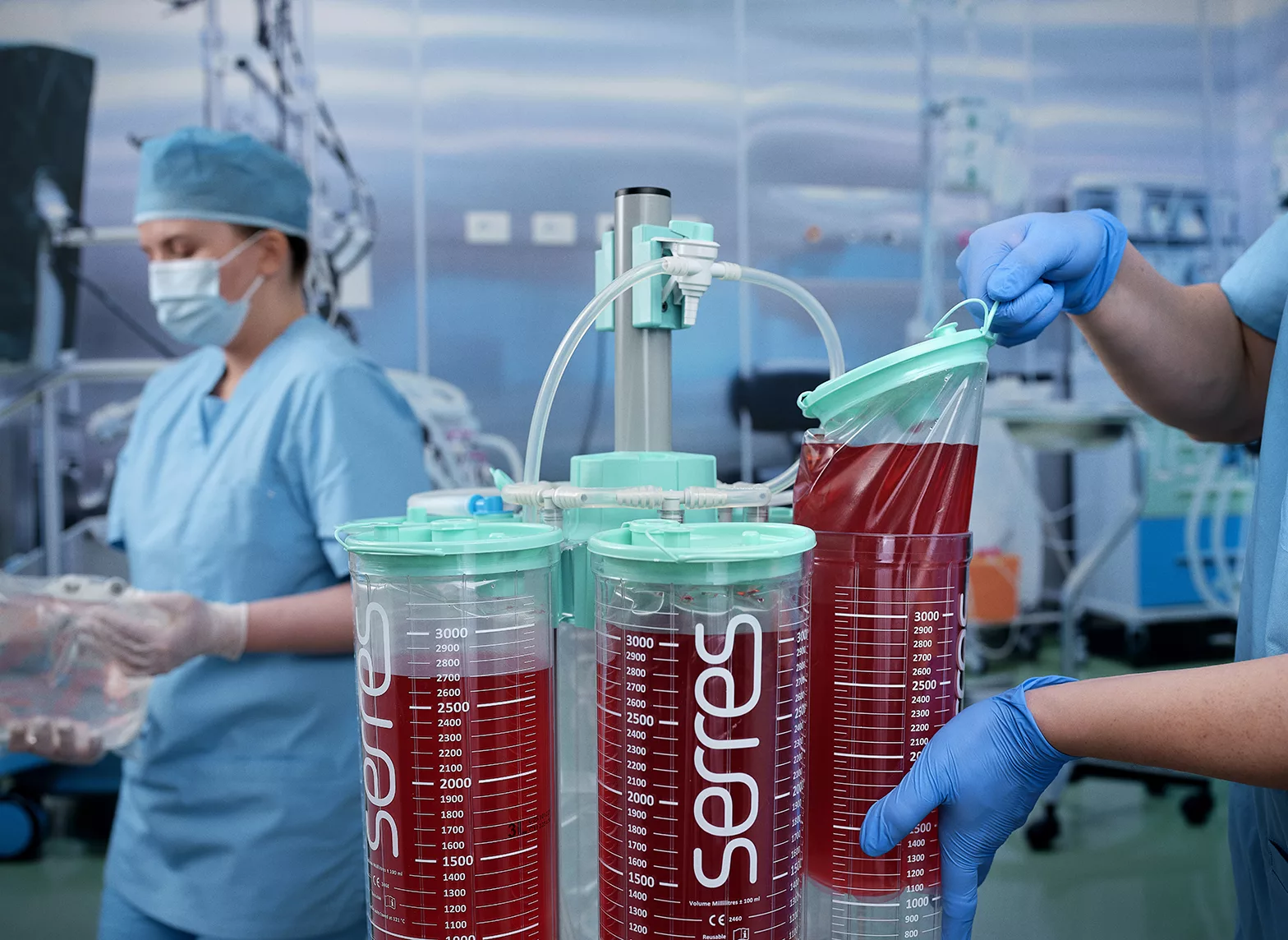
In the realm of healthcare, patient safety takes precedence above all. Every facet of medical care, spanning from the procedures themselves to the tools and materials employed, must prioritize the patient’s safety. At Serres, we have embraced this dedication wholeheartedly, especially concerning surgical fluid handling. Our mission is to ensure efficient and sustainable fluid management without compromising patient and healthcare personnel safety.
From Unsanitary Surgical Suction Practices to The Highest Possible Protection Against Contamination
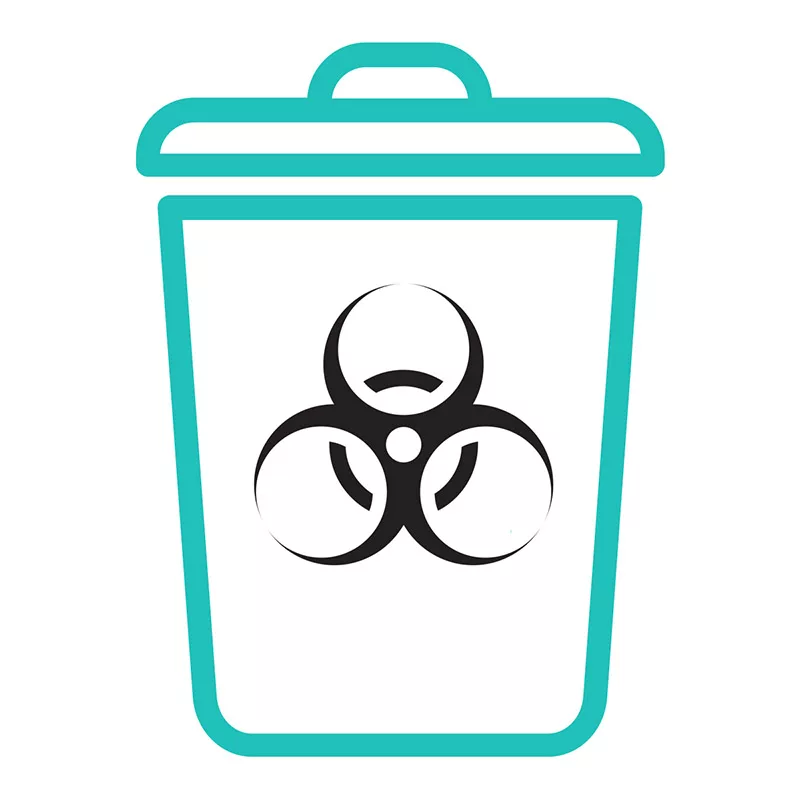
Surgical fluid suction procedures have evolved from unsanitary practices such as draining patient fluids directly into the sewer, using reusable bottles or open canisters into single-use plastic suction bags, single-use canisters, or fluid handling machines that prevent contact with the patient fluids.
Single-use canisters however can pose a significant risk of splashing or aerosolization of blood-borne pathogens as the canisters are manually opened and the content is poured into the sewer.
Rising the level of patient and staff safety to its maximum means that plastic waste is generated. Single-use plastic suction bags and canisters are disposed of after each procedure. The waste management machines in the market have single-use plastic components that need to be changed and disposed of after each operation. The disposal is typically done by incinerating the bag or canister with its contents.
The amount of plastic waste generated per operation has an undeniable effect on the environment.

Reducing Plastics and Enhancing Innovation
Our belief lies in minimizing our environmental impact without compromising the quality of care. To achieve this, we have optimized our product, the single-use suction bag to contain a minimum amount of plastics, while maintaining, if not surpassing, the high performance standards. This commitment to material efficiency not only reduces waste, but also decreases our and hospitals carbon footprint.
As the health sector is responsible for 5%-10% of global greenhouse gas emissions (¹) and if left unchecked this effect is predicted to triple by 2050 (²), we are proud to spearhead sustainability within the healthcare industry.
On our journey towards more sustainable healthcare, we continually seek novel approaches to reduce our environmental footprint. To maintain our leadership position in our industry and support hospitals in their path to carbon neutrality, we are continuously investigating non-fossil raw materials as well as recycled and recyclable options.
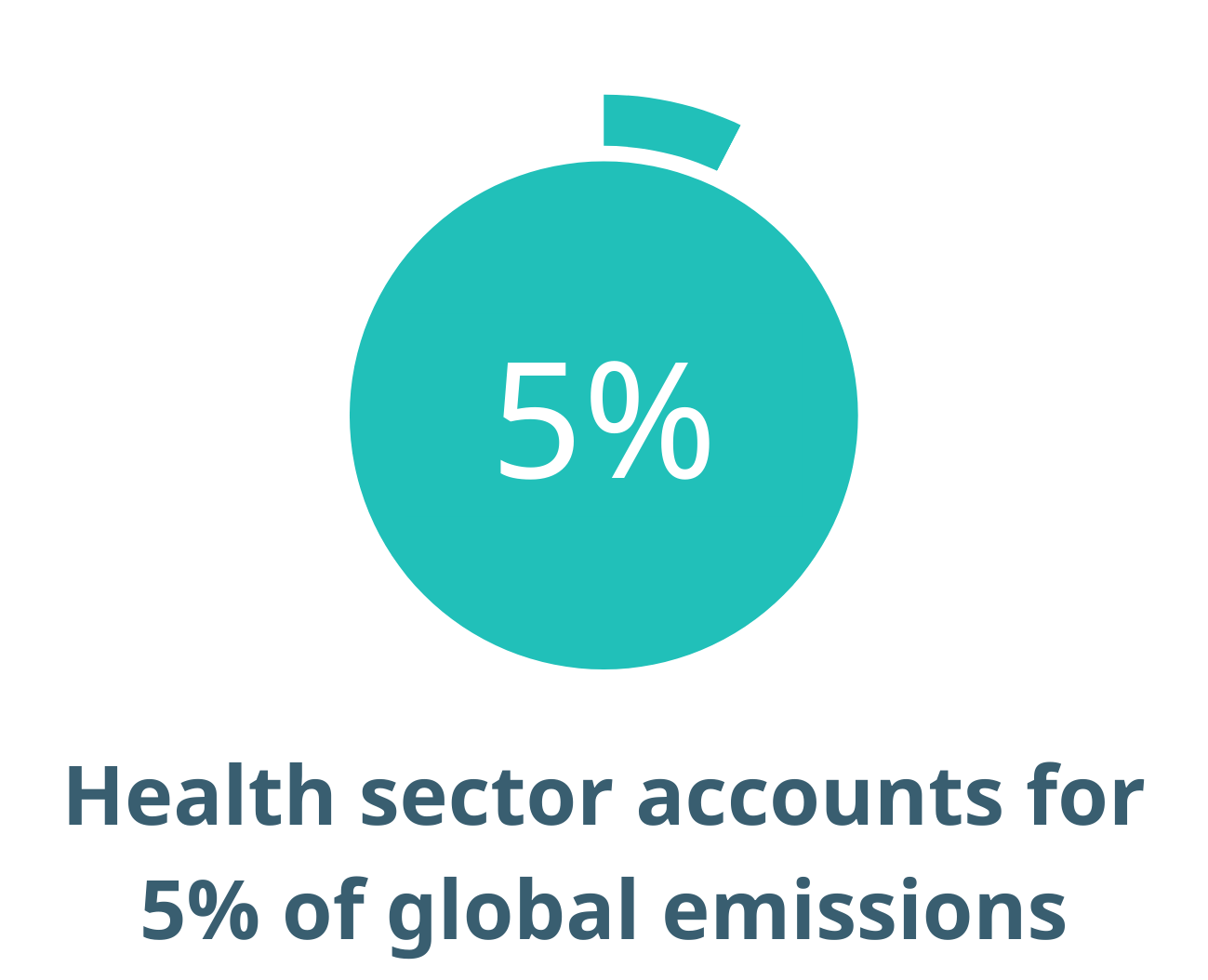
Packaging Efficiency: Smart logistics and hospital storage optimization
Packaging efficiency plays a pivotal role in our mission. By meticulously considering the design and logistics of our product packaging, we have achieved remarkable results.
Our dedication to using less plastics and optimizing packaging efficiency translates into the ability to fit 4 times more of our Serres Suction bags into the same space as comparable products (³).
This not only conserves space but significantly reduces transportation emissions, as more product packages can fit into one truck. Learn more in our blog post about the Carbon footprint of the Serres 2l suction bag.
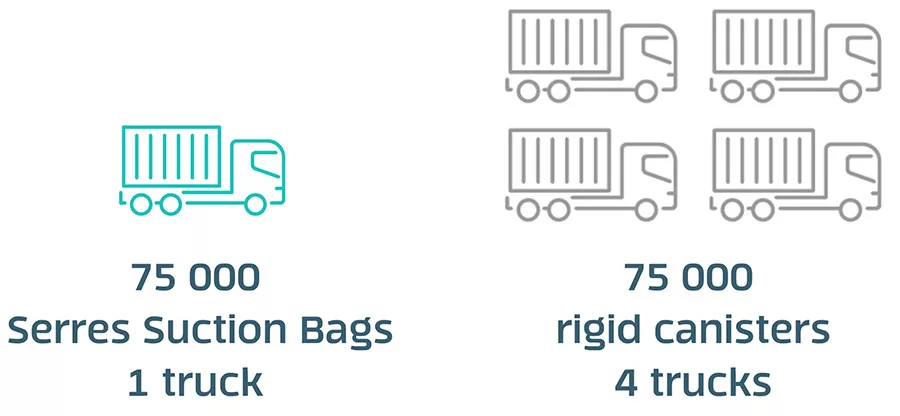

The Healthcare Sector’s Sustainability Challenge
The daily operations within healthcare facilities significantly contribute to the carbon emissions, highlighting the need for sustainable practices. Operating rooms stand out as particularly energy and resource-intensive environments.
They alone can account for a staggering 25% of a hospital’s total environmental impact (⁴). This statistic is a stark reminder of how critical it is to address sustainability in the every day operations.
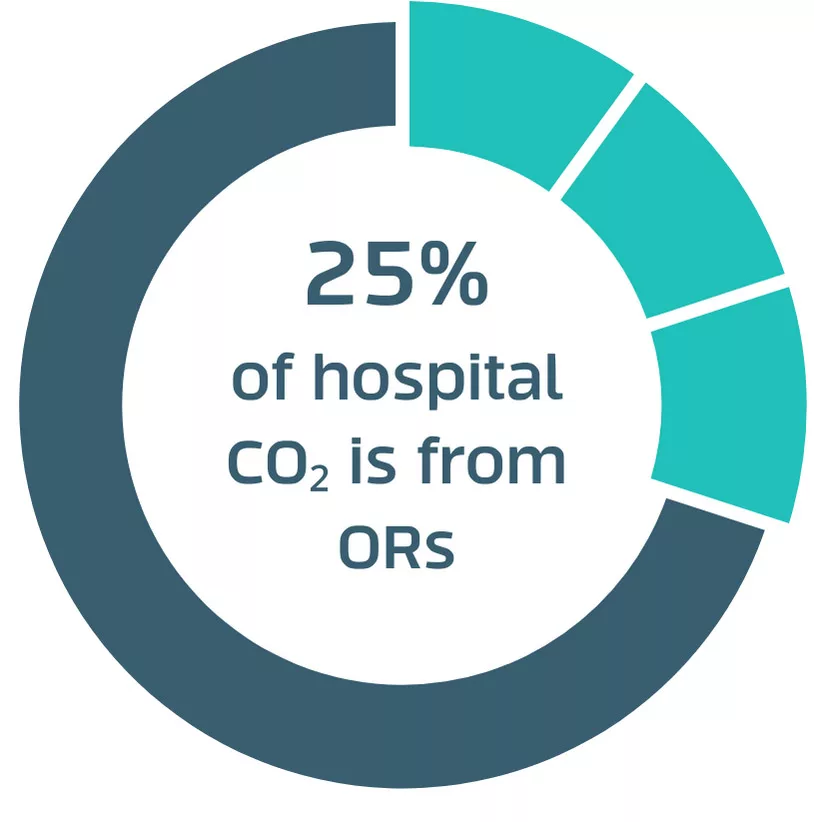
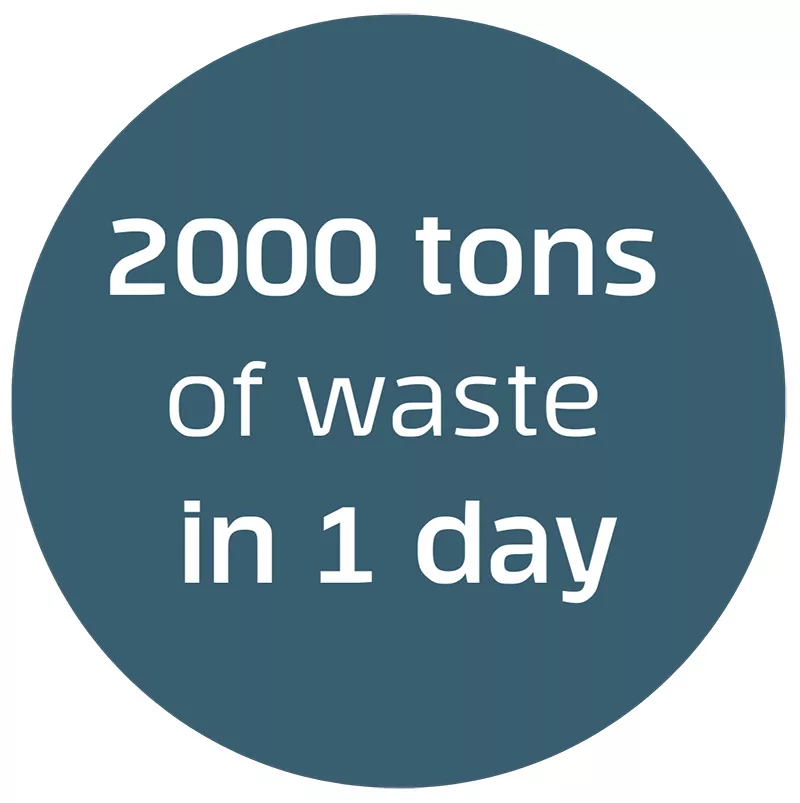
Moreover, the volume of medical waste produced by operating rooms is alarmingly high, with up to 2000 tons of waste generated in a single day, primarily in the form of disposable medical supplies (⁵).
This not only highlights the issue of waste management but also underscores the potential for environmental harm. Therefore, promoting sustainability and taking actions within healthcare facilities can also make a significant difference when trying to reach sustainability targets.
You can read more details about the environmental impact of the healthcare sector in our blog post.
1) Climate change and health: three grand challenges | Nature Medicine
2) https://www.weforum.org/agenda/2022/11/pharmaceutical-industry-reduce-climate-impact/
3) Packaging & logistics efficiency comparison is based on market analysis & study on number of similar-use products in 1 package & pallet efficiency in trucks and containers. Study was conducted in 2023.


